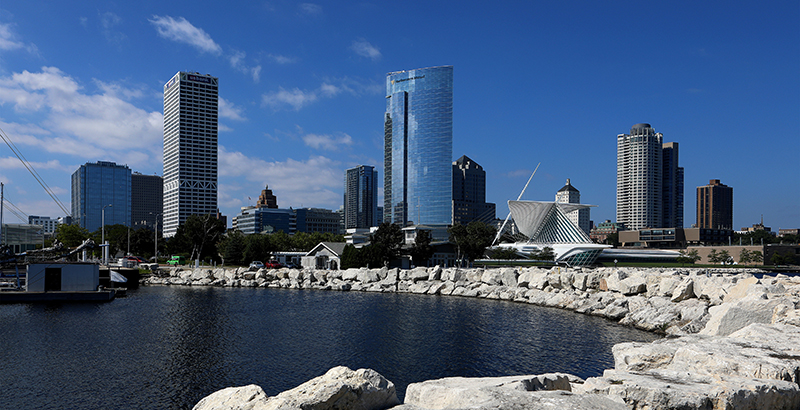Analysis: What Wisconsin’s Governor Gets Wrong About How Much Milwaukee’s School Voucher Program Costs — and How Much It’s Helping Students in (and out of) the Classroom

In a recent 74 Interview, Wisconsin Gov. Tony Evers repeated a number of misleading statements about private school choice programs in justifying his efforts to freeze or end them. Here, we respond to three of Evers’s claims.
“[The program is] costing hundreds and hundreds of millions of dollars.”
Because the voucher amount is substantially less than the funding level for traditional public schools, the program represents a savings to taxpayers so long as a significant portion of voucher students would have attended traditional public schools in the absence of the voucher. The nonpartisan Legislative Fiscal Bureau put the break-even point around 73 percent for Racine, and it would be comparable in other districts. Dr. Robert Costrell of the School Choice Demonstration Project at the University of Arkansas similarly estimated the break-even to be around 74 percent and found that the program saved around $32 million by 2008. Further, Dr. Martin Lueken of EdChoice estimated the breakeven point to be around 75 percent for the Milwaukee voucher program and found that the program saved Wisconsin taxpayers about $343 million by 2015.
Given that most students using the voucher program are from low-income households, it is likely that well over three-quarters switch from public to private schools. In fact, the most recent experimental evaluation of the Louisiana Scholarship Program – and the most recent experimental evaluation of the D.C. Opportunity Scholarship Program – both found that 89 percent of children who lost the voucher lottery attended public schools without the voucher.
The bottom line? School choice saves taxpayer money in the Badger State.
“The data we’ve had for 20-some years pretty much shows that there’s not an appreciable — or any — difference in academic achievement of kids that get a voucher and those that go to regular public schools.”
While the inclusion of the caveat “not appreciable” could allow for substantial hedging, the preponderance of scientific evidence is hard to ignore. There is considerable research on the Milwaukee Parental Choice Program — and most of the rigorous evidence reveals benefits.
The two random assignment evaluations of the program, published in the Quarterly Journal of Economics and Education and Urban Society, found that the program increased students’ test scores. The more recent longitudinal evaluation by the University of Arkansas found that students participating in the program have higher achievement growth in reading than their matched peers in public schools, though similar achievement growth in math. An evaluation published in Policy Studies Journal found that students exposed to the voucher program are also 4 to 7 percentage points more likely to graduate from high school, enroll in a four-year college and persist in college than their carefully matched peers in public schools. Although unable to use the same matching methodology, more recent correlational studies by the Wisconsin Institute for Law & Liberty have similarly found higher proficiency rates on state exams for the program’s students.
Ironically, the day Evers’s interview was published, another study using publicly available data from the 2017-18 school year came out finding benefits of choice in the Badger State. Specifically, it found that private schools participating in choice programs in Wisconsin were 36 percent more cost-effective than district-run schools, on average.
There are also six evaluations that examine what happens to test scores for the children left behind in public schools. All six of the studies find statistically significant positive effects of school choice competition in Milwaukee. In other words, school choice is a tide that lifts all boats in Milwaukee — even though in his interview Evers said “that just hasn’t happened.”
“If it is truly about [higher achievement], then I say it’s a program that hasn’t lived up to its original intent.”
While there is strong evidence that the program results in higher achievement for students, school choice is not just about test scores. Educational choice in Wisconsin has improved several other meaningful life outcomes. For example, a 2019 evaluation found that the program reduced drug crimes by 53 percent, property damage crimes by 86 percent and paternity suits by 38 percent. Other studies have found that the program increased civic engagement and volunteering. And the evidence suggests that the program has led to racial integration as well.
Education reform proponents in the legislature have successfully scrapped many of the worst parts of the governor’s budget for school choice. But advocates for educational options for low-income families in Wisconsin must remain vigilant, as Evers seems willing to publicly ignore positive evidence on school choice.
Will Flanders is research director at the Wisconsin Institute for Law & Liberty. Corey A. DeAngelis is director of school choice at the Reason Foundation and an adjunct scholar at the Cato Institute.
Get stories like these delivered straight to your inbox. Sign up for The 74 Newsletter

;)